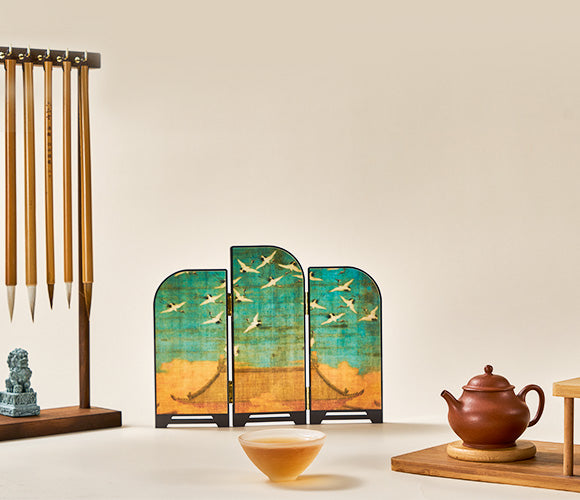Yunnan, located in southwestern China, is one of the most famous tea-producing regions in the world. Known for its diverse climate and rich soil, it produces a wide range of high-quality teas, from the delicate white tea to the bold and earthy Pu-erh. One of the key factors that make Yunnan tea so unique is its seasonal harvests. Each season brings out different flavors, aromas, and qualities in the tea leaves, making them distinct and exceptional in their own way. In this blog post, we’ll explore the differences between spring tea, summer tea, and autumn tea, and uncover the natural secrets that make Yunnan tea so special.
1. Spring Tea: The Freshness of New Beginnings
The spring harvest in Yunnan is often considered the best and most sought-after. This is when the tea leaves are at their most tender, full of fresh vitality, and packed with early-season nutrients.
Flavor: Spring tea is typically lighter, with a fresh, floral, and vegetal taste. The leaves, which are harvested before they fully mature, offer a delicate sweetness and a fresh, green flavor profile.
Aroma: The aroma of spring tea is often described as refreshing and fragrant, with notes of fresh grass, flowers, or even fruit.
Why Spring Tea is Special: The spring harvest benefits from the cool temperatures and frequent rainfall of the season, which helps the tea leaves retain a high concentration of antioxidants and polyphenols. This makes the tea not only flavorful but also packed with health benefits. Spring tea is a perfect choice for those who appreciate a light and refreshing cup of tea.
In Yunnan, spring tea is especially prized, with teas like Yunnan Green Tea and Dian Hong (a famous Yunnan black tea) being harvested early in the season. These teas offer the first glimpse of the year’s crop and carry a sense of renewal and purity.
2. Summer Tea: The Boldness of Growth
As the weather warms up, the summer months bring a new dimension to Yunnan tea. The growing conditions are more intense, with hotter temperatures and longer days. This affects the flavor profile of the tea leaves, which are now maturing and becoming more robust.
Flavor: Summer tea tends to be fuller-bodied and slightly stronger than spring tea. The leaves are larger and thicker, having matured under the intense sun. You’ll notice a more pronounced bitterness and richness in the flavor, but it’s balanced with a natural sweetness.
Aroma: The aroma of summer tea is typically stronger and more earthy, with hints of toasted nuts, honey, or spices.
Why Summer Tea is Special: The high temperatures and longer sunlight hours during summer result in tea leaves that have a more concentrated flavor. The teas harvested in this season are often bolder, offering a more intense tea experience. They are great for people who enjoy a fuller taste and a robust cup of tea.
Some of the most famous Yunnan teas, such as Pu-erh tea, are harvested during the summer months. These teas have a deeper, earthier flavor that benefits from the more mature leaves.
3. Autumn Tea: The Richness of Full Maturity
Autumn is the final season of the tea harvest in Yunnan, and it offers a unique experience for tea lovers. By the time autumn arrives, the tea leaves are fully matured and have absorbed the full essence of the summer’s sun.
Flavor: Autumn tea is rich, deep, and mellow, with a smooth and balanced taste. The flavors are round and full-bodied, with less bitterness than the summer harvest, making it a perfect tea for those who enjoy a smooth, comforting cup.
Aroma: The aroma is complex and layered, often carrying notes of ripe fruit, honey, and sometimes a hint of wood or leather.
Why Autumn Tea is Special: By this time, the tea bushes have gone through a complete cycle of growth, and the leaves have fully matured. The cooler nights of autumn allow the leaves to develop a richness and depth that gives autumn tea a complex and refined character.
Autumn teas are often prized for their smooth and well-rounded taste. Teas like Yunnan Black Tea and aged Pu-erh are harvested in this season, offering an enjoyable balance of sweetness and depth.
4. How Seasonal Variations Affect Yunnan Tea
Yunnan's distinct seasonal variations play a crucial role in shaping the flavor profile of its teas. The region’s high altitudes and varying temperatures create an ideal environment for growing tea, with different seasons contributing to the complexity of the leaves.
Temperature and Rainfall: The cool spring mornings and mild temperatures during summer and autumn result in tea leaves with different levels of sweetness, bitterness, and aroma.
Altitude: Many Yunnan tea plantations are located at high altitudes, where the growing conditions can be quite different from lower-lying areas. The variation in altitude also impacts the flavor, with higher-altitude teas often being more delicate and aromatic.
Soil and Climate: The unique soil and climate conditions of Yunnan allow for the creation of a wide range of flavors in the tea leaves, contributing to the diversity of Yunnan’s teas.
5. Enjoying Yunnan Tea Through the Seasons
Whether you prefer the light, fresh flavor of spring tea, the bold richness of summer tea, or the smooth maturity of autumn tea, there’s a Yunnan tea for every taste. Many tea connoisseurs enjoy experimenting with teas from different seasons to appreciate the distinct characteristics that each harvest brings.
As a beginner or a seasoned tea lover, understanding the seasonal differences in Yunnan tea will help you explore a wide range of flavors, aromas, and brewing techniques. Yunnan tea offers a journey through nature’s cycles, each season revealing a new facet of its tea culture.
Find similar articles:
blogMore stories

How to Best Steep Aged White Tea?


